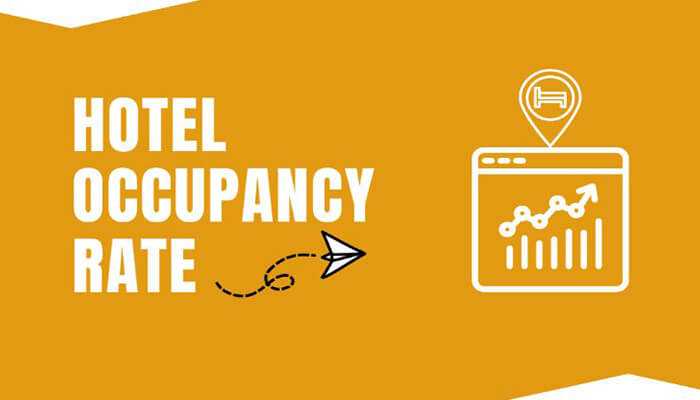Budgeting helps us achieve our goals. Whether buying a home, subsidising our education, or investing in retirement, we have a solid strategy to make a difference. This article will teach you how to set financial goals, use helpful tools like an EMI calculators online, and easily buy big tickets.
It will also discuss companies like ONGC (Oil and Natural Gas Corporation) to help us get what we want financially. ONGC is a trusted company looking for oil and gas owned by India’s government. People give money to get shares, hoping to get more over time.
A. Setting Financial Goals
Having clear financial goals is essential. They help us plan and stay focused. They give us a sense of purpose and direction, and motivate us to save and spend wisely.
Money goals can be long or short. Long-term goals are for the future, like buying a house or saving for when we are old. Short-term goals are like paying off what we owe or getting a new car.
We should know what we want financially for long and short periods. We should write down all our goals, be it big or small. Then, we can decide on which ones are needed and which are wanted.
Difference between Needs And Wants
Needs are things we must have to survive and live comfortably. Things like food, shelter, education, and healthcare fall in this category. Wants are desires and luxuries. Things like fancy gadgets, vacations, and entertainment are wanted.
It is important to focus on our needs first to prioritise our goals. Make sure our basic needs are covered before working on our wants. But don’t ignore wants ultimately. Having something fun to look forward to is motivating.
We should break big goals into smaller, doable steps. This will make them feel less stressed. We should celebrate small wins to stay motivated. We should also change goals as his life changes over time.
B. Saving Strategies
To achieve financial goals, follow these steps to save money:
1. We should make a plan for our money and track what we spend. We should know where his money goes each month.
2. We should automate his savings and investments. Set up automatic money transfers to separate savings accounts from his paycheck. This way, we save before we have a chance to spend.
3. We could also automate investments through our employer’s retirement plan or an investment app.
4. Cut unnecessary expenses. We should look for ways to spend less, like eating out less, stopping unused subscriptions, or downsizing. Small savings add up over time.
5. Consider earning additional income. Get a side job or freelance gig. Sell unused items online. Put that extra income directly into savings.
6. Creating a budget, automating savings, cutting expenses, and earning more income – follow these strategies consistently. Move money to separate savings accounts right away before spending it.
7. Make saving a habit and a priority. Treat your goals like mandatory expenses that must be “paid” each month from your income. Stay disciplined and watch your savings grow!
C. Understanding EMI Calculators
What is an EMI Calculator?
An EMI calculator is a tool that helps us calculate monthly payments called EMIs. An EMI (easy monthly installments) is the same amount we pay monthly to repay a loan plus interest.
These calculators take numbers like the loan amount, interest rate, and loan length. They determine the exact EMI we will need to pay monthly. They show the total interest payable over the loan period.
Using an EMI calculator has many benefits, like –
• It helps us plan our loan repayments better.
• We can see how changing the loan amount or tenure affects the EMIs.
• This lets us pick an affordable option.
When using an EMI calculator online, we must consider a few factors, like –
• We must account for any upfront fees the lender may charge.
• We must factor in our current income and future income prospects.
• We must also leave room for other expenses and emergencies besides EMIs.
Overall, EMI calculators are simple yet powerful tools. They bring transparency to loan repayments and help you borrow responsibly according to your repayment capacity.
D. Buying Big-Ticket Items
Planning is essential when buying big things like a house or car. These mean spending a lot of money upfront or borrowing long-term. Proper planning helps ensure we can afford them without any burden.
Responsible money planning today can lead to a safe and prosperous future. Use an EMI calculator online to check if you can comfortably afford the monthly payments with your current income.
EMI calculators are convenient for big purchases paid through loans. We can compare loan tenures and interest rates to find the most suitable option. But don’t just look at EMIs. Always consider the total interest paid over the full term.
It’s wise to have significant savings first for big purchases. One option is investing in stocks or mutual funds and monitoring the ONGC share priceand returns. This builds a decent down payment corpus over time.
Have an investment strategy for financing big goals. Equity tends to outperform other assets over long periods but is riskier in the short term. Diversifying across asset classes like debt funds can balance risk and returns according to your goals.
So, plan thoroughly, use EMI calculators, have a diversified investment portfolio, and monitor holdings like the ONGC share price before making big-ticket purchases. This ensures we make intelligent financial decisions.
Conclusion
In summary, setting clear financial goals, following innovative saving strategies, and using tools like EMI calculators can help you plan for big purchases effectively. An EMI calculator online provides transparency into loan repayments, ensuring we borrow responsibly.
Monitoring investments like the ONGC share price can build a corpus for down payments over time. Remember, achieving financial freedom requires discipline and patience. Set realistic, achievable goals aligned with your income and expenses.
Stay focused but also flexible enough to adjust your plan as circumstances change. Responsible financial planning today can pave the way for a secure and prosperous future.
Source: Cosmo Politian











